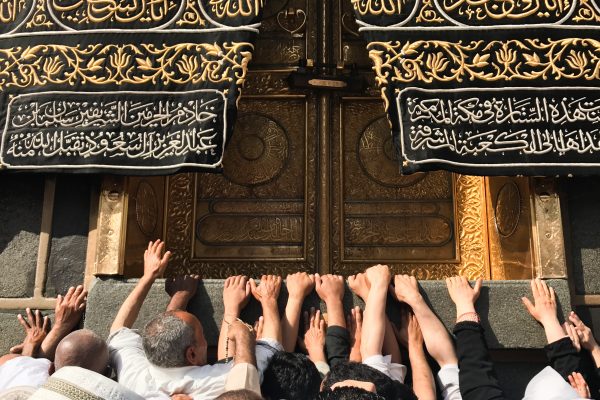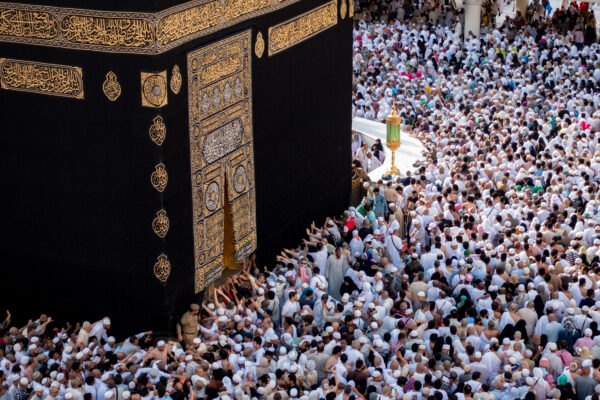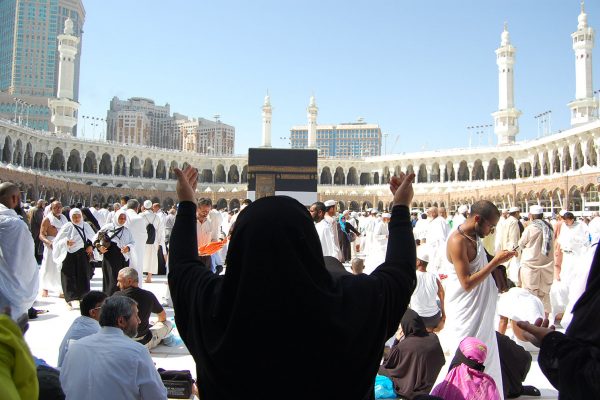It is important to remember that history shows us hajj has been suspended and cancelled before – and if history teaches us anything, it is that there is always hope despite whatever odds there may be.
It is important to remember that history shows us hajj has been suspended and cancelled before – and if history teaches us anything, it is that there is always hope despite whatever odds there may be.
[This post was originally written in April 2020. Note the number of COVID-19 cases have increased since.] Amidst the COVID-19 pandemic sweeping the world, Saudi Arabia asked Muslims around the world on Tuesday to consider deferring and cancelling their hajj plans for this year in an effort to help stop the spread of the Coronavirus.
Saudi Arabia is currently on lockdown with COVID-19 measures, with access into Mecca and Medina severely restricted. With cases around the world skyrocketing to almost 858,000 with over 42,000 deaths, the annual hajj pilgrimage – which sees around 2 million Muslims gathered in Mecca and Medina – may be forced to be suspended.
While many Muslims are lamenting these strict measures, it is important to remember the reasoning and greater good behind it – we must collectively do everything in our own powers to stop the spread of COVID-19, and protect the vulnerability of human lives lost on such a grand scale from this virus. It is also important to remember that history shows us hajj has been suspended and cancelled before – and if history teaches us anything, it is that there is always hope despite whatever odds there may be.
Here are some of the examples from history of when hajj was cancelled, in the hopes that it reminds us that despite some harsh years, there is always hope for a better year:
The 865AD Massacre
In 865AD, Ismail bin Yousef launched a terrifying attack on the Mountain of Arafat in Mecca – massacring countless pilgrims in the process. Part of his larger conflict with the Abbasid Caliphate, this raid along with the horrifying bloodshed of the fighting forced hajj to be suspended for the year as people mourned those lost during the raid.
The 930AD Attack on Mecca
This attack beginning in 930AD saw hajj cancelled for an entire decade – with historical records claiming more than 30,000 pilgrims killed during the attack. Abu Taher Al-Janabi, the leader of the Qarmatians sect based in modern-day Bahrain, launched an attack on Mecca with an almost unprecedented disgrace on the holy city.
Believing pilgrimage to Mecca to be a pagan ritual, Al-Janabi and his followers killed tens of thousands of Muslims in Mecca, with the bodies reportedly dumped in the holy Zamzam well. The Grand Mosque was looted and the Black Stone was stolen from the Kaaba and taken back to Bahrain. Hajj was suspended for a decade and pilgrimage restored only when the Black Stone was finally returned to the Kaaba.
The 983AD Political Dispute
Beginning in 983AD, deep-seated political disputes between the ruling powers of the Abbasid Caliphate in Iraq and Syria and the Fatimid Caliphate in Egypt stopped Muslims from travelling to Mecca for the pilgrimage of hajj. The power-fighting between the two opposing Muslim empires saw hajj suspended for eight years – it was only in 991AD that Mecca saw the return of pilgrims from around the ummah come back for hajj.
The 1831 Plague
In 1831 hajj was forced to be suspended after a horrifying plague from India swept through Mecca, brought from the very pilgrims who had travelled to perform hajj. Reportedly 75% of the pilgrims in Mecca died from the swift plague, forcing the entire pilgrimage to be suspended in order to help contain and stop the spread of the disease.
The 1846 and 1858 Cholera Outbreaks
In a little over a decade hajj was forced to be suspended at least twice, as the outbreak of cholera forced authorities to stop the pilgrimage. The 1846 cholera outbreak that spread in Mecca killed more than 15,000 Muslims – with infections and the spread of cholera plaguing its residents until 1850. Hajj was forced to be suspended to help stop the spread of disease as well as attend to those who had died. The second 1858 outbreak of cholera saw a similar scenario – this time with many pilgrims forced into make-shift quarantine camps on Egypt’s Red Sea shores.
As this year’s COVID-19 pandemic continues to halt life as we know it, we must take comfort in the fact that Allah Knows best, and if indeed hajj is to be suspended for this year, we must remember that it is for the greater good. We pray that we will all collectively get through this as stronger and better Muslims.





